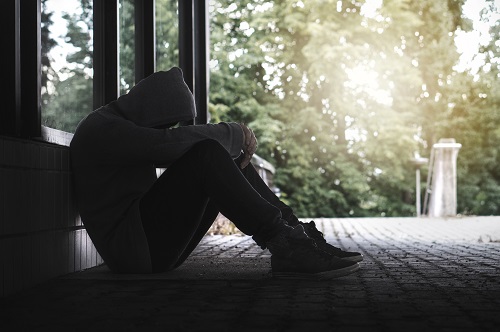 Teenagers who experience discrimination may suffer the consequences long after the encounter ends. Authors of a new analysis say experiencing discrimination could lead to depression, poor self-esteem, lower academic achievement, substance abuse, and risky sexual behavior.
Teenagers who experience discrimination may suffer the consequences long after the encounter ends. Authors of a new analysis say experiencing discrimination could lead to depression, poor self-esteem, lower academic achievement, substance abuse, and risky sexual behavior.
The study, published in the journal American Psychologist, included the results from 214 peer-reviewed articles involving 91,338 adolescents.
Lead author Aprile D. Benner, PhD. is an associate professor of human development and family sciences, and a faculty associate of the population research center at the University of Texas at Austin. She says the effects across the board are not surprising, but the authors were surprised at how pervasive they are. "It affects all aspects of their well-being, it affects their depressive symptoms, how anxious or lonely they feel, their self-esteem, how they view themselves, their psychological resilience, and kind of those positive psychological processes", says Benner. "The consistent relations we identified are of particular concern, given the long-term linkages between depression, anxiety, substance use, aggression, hostility, and poor academic performance and engagement with with an individual's risk of illness or early death.
She says the study focused only on direct discrimination experienced by the adolescent. That ranges from the general - like being treated with less respect or courtesy because of race. It could include a specific offender, like getting hassled by police, or being followed around by a manger in a store. The adolescent could feel they were given a lower grade than deserved, or perhaps disciplined unfairly. In other instances, they were the target of a negative or derogatory name from a peer at school.
Benner says they found this could affect the teens behaviors, engagement, and achievement in schools. "So, how motivated are they to do well in school, how engaged are they in school? How are they doing on their tests, their GPA, standardized achievements tests?" She says they also noticed an increase in risky behavior. "We look at substance abuse, alcohol abuse, marijuana use and other drug use. Also, at risky sexual behavior, the number of sexual partners and practicing unsafe sex. Finally, at delinquency and externalizing behaviors such as aggression, and anger."
Researchers call it the first study looking at the impact of perceived racial and ethnic discrimination using meta-analyses. Benner says most of the research surrounding discrimination and adolescents has been fairly recent, happening in the past 20 years. They thought it was important to analyze all it all, try to figure out the common themes, and work on what to do with the findings.
She hopes research in the future will help them understand more about how adolescents' everyday contacts can be really supportive. "There's some evidence that having warm and supporting relationships with a parent, where a parent can talk positively about race and cultural values and cultural backgrounds of the family, that those can protect adolescents from these negative experiences. So, it's not that that the teen won't experience discrimination, it's that those experiences of discrimination will have less of an effect."
Benner says peers can also be part of that, and they've already done some research looking at cross-ethnic friendships. "Having friendships with people who are not your same race can be helpful and protective. And, having friends who are going through the same discriminatory experiences is also helpful because you have a sounding board, someone to talk to. You know it's not just you."
But while those relationships, and strong community support is helpful, Benner says their ultimate goal is not just to support adolescents when they experience discrimination, but ultimately, get the discrimination to stop.
"There's some evidence from what's called intergroup contact bearing", says Benner. "It's all about, if you have contact with people who are different than you, and that contact is on equal footing where everybody is supported and its supported by people who are in authority, that it improves your opinion of people who are different than you. What we don't know, is how can those types of things decrease your behaviors in what might be discriminatory. So I think that might be a big next step to see, can we support intergroup contact, and will that actually help the next generation be less discriminatory."
All in an effort to make the task of documenting dark effects like these a thing of the past.
Kim Lucey is a freelance journalist with more than a decade of experience in the field. Her career has included coverage of big breaking news events like the Sandy Hook school shooting, lockdown in Watertown, MA following the Boston marathon bombings, and Superstorm Sandy. Her in-depth reports have garnered awards, including a focus on treating mental health issues in children. Currently, she is a reporter at a television station covering the news across the Greater Boston Area with an appreciation for fact-finding and storytelling. Follow Kim on Facebook and Twitter.